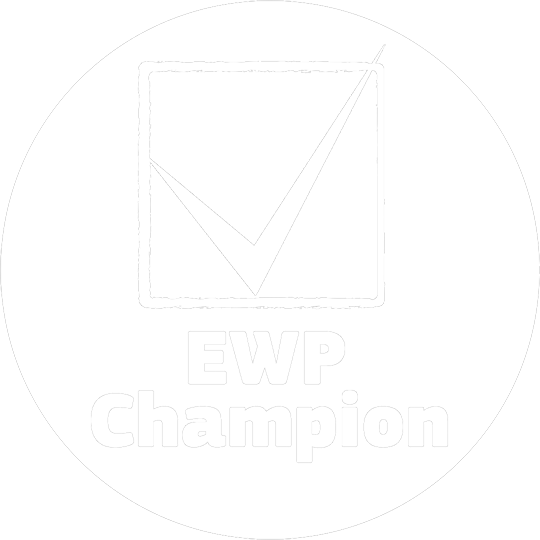UNDERGRADUATE UNIVERSITY STUDY PROGRAMME
ABOUT THE PROGRAMME
ABOUT THE PROGRAMME
The care about the preservation of the environment is nowadays prominent in all human activities, and so this study programme focuses on:
• Preservation of ecosystems and sustainable use of natural resources,
• Implementation of high-quality ecological standards across various industries,
• Adjustment of business to the carrying capacity of the marine ecosystem,
• Long-term contribution to the preservation of marine ecosystems and
• Sustainable management of the sea resources.PROGRAMME DURATION
PROGRAMME DURATION
• Three years (six semesters)
• 180 ECTS creditsDEGREE AWARDED
DEGREE AWARDED
• Bachelor (Baccalaureus) of Engineering in Applied Marine Ecology
• Univ. bacc. ing. oecol. mar.POSSIBILITY TO CONTINUE STUDIES
POSSIBILITY TO CONTINUE STUDIES
• Graduate university study programme in Mariculture at the University of Dubrovnik
• Numerous similar study programmes at the universities across Croatia and abroadJOB OPPORTUNITIES
JOB OPPORTUNITIES
Upon graduating from this programme, students can get a job in various industries, which directly or indirectly depend on the sea, and which need experts who can advise them on how to transform their business to be aligned with sustainable development principles.
Bachelors of Engineering in Applied Marine Ecology will be able to do jobs of the corresponding complexity level in:
• Aquaculture,
• Maritime industry (environmental officer),
• Tourism (oriented towards environmental protection),
• Facilities for biotechnological processing of waste waters and other waste,
• Microbiological, biochemical and genetic laboratories of various purposes (industry, inspection services, biochemistry and genetic diagnostics).YEAR I
Compulsory courses
- Introduction to Ecology
- General Biology
- General and Inorganic Chemistry
- Introduction to Oceanography
- English Language I/1, II/1
- Physical and Health Education
- Marine Ecology
- Marine Biology
- Marine Chemistry
- Biostatistics
YEAR II
Compulsory courses
- Conservation Biology
- Ecophysiology of Marine Organisms
- Chemical Ecology
- Introduction to Aquaculture
- Genetic and Molecular Methods in Ecology
- Microbiology
- Ecology of Sea Bottom Communities
- Fish Ecology
- Plankton Ecology
Elective courses
Module: Ecology and Sea Protection- Allochthonous and Invasive Species
- Fundamentals of Biochemistry
- Cell Biology
- Histology
- Analytical Chemistry
- Biodiversity and Evolution
- Ecological Monitoring and Bioindicators
- Marine Mammals Ecology
- Embryology of Marine Organisms
- Human Ecology
- Maritime and Ecological Law
Module: Aquaculture
- Aquaculture Technology
- Aquaristics
- Introduction to Integrated Multitrophic Aquaculture
- Aquaculture and the Environment
- Biology and Shellfish Farming
- Marine Biomedical Research
- Marine Organisms Nutrition
- Marine Organisms Parasitology
YEAR III
Compulsory courses
- Marine Resources Management
- Marine Biotechnology
- Sea Fisheries
- Professional Practice
- Undergraduate Thesis
Elective courses
Module: Ecology and Sea Protection- Climate Change Ecology
- Ecotoxicology
- Marine Geology
- Basics of GIS Application in Ecology
- Sources of Pollution and Marine Ecosystems Protection
- Introduction to Modelling in Marine Ecology
- Natural History
- Environmental Impact Assessment
- Waster Waters Processing
- Protected Areas Management
- Green Technology
Module: Aquaculture
- Biology of Farmed Echinoderms and Cephalopods
- Biology of Farmed Macrophytes and Lower Invertebrates
- Biology and Farming of Crustaceans
- Biology of Farmed Fish
- Integrated Coastal Zone Management
- Project Management
- Laws and Regulations in Aquaculture
WHAT MAKES US DIFFERENT
WHAT MAKES US DIFFERENT
• The University of Dubrovnik has different laboratories, experimental aquaculture systems, breeding parks, vessels and a suitable facility for practical student work in the Bistrina cove (part of the Bay of Mali Ston) at its disposal.
• Training and research vessel ‘Naše more’ (‘Our Sea’) is used to go on field trips and thus become acquainted with research methods at sea.
• Together with their teachers, students participate in projects, scientific conferences and publish papers with the results of their research in domestic and international journals.OUR FACILITIES AND EQUIPMENT
OUR FACILITIES AND EQUIPMENT
- Two amphitheatres
- 17 classrooms
- Five computer laboratories
- One distance learning classroom
- Chemical laboratory
- Biological laboratory
- Laboratory for mariculture in the Bistrina cove
CONTACT
CONTACT
www.unidu.hr
Email: upisi@unidu.hr
Phone: +385 20 446 028










